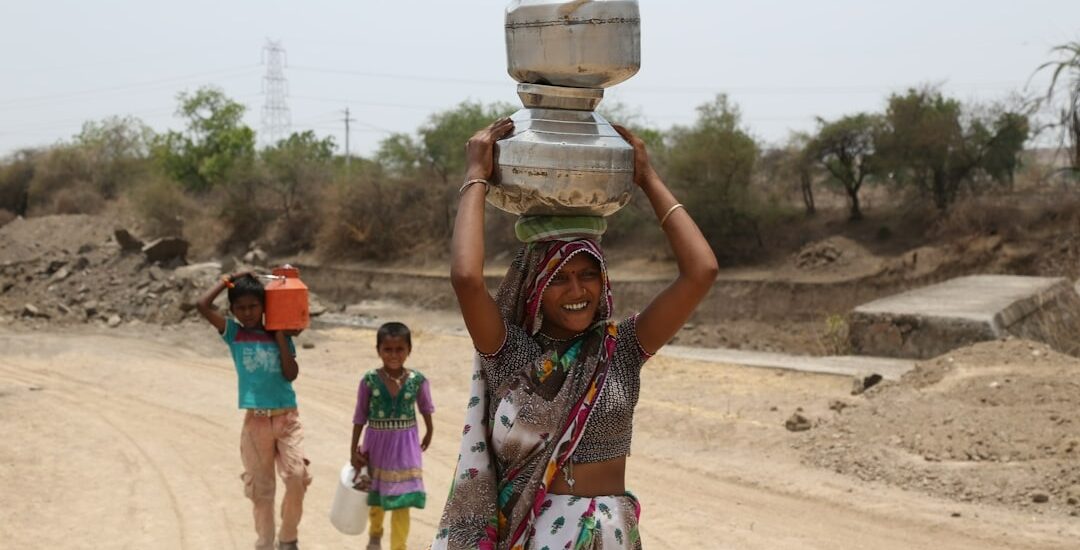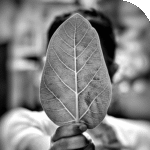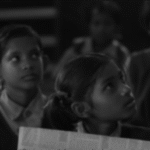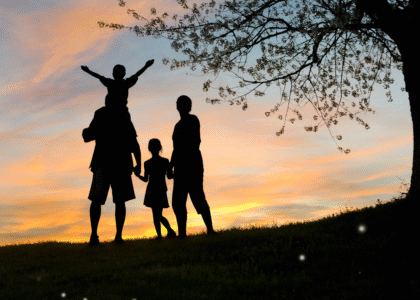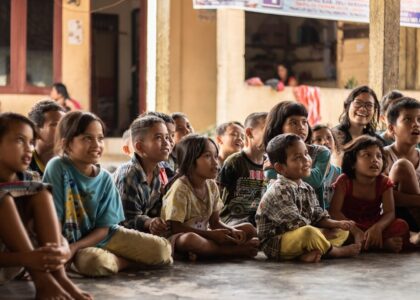Introduction: Water—The Source of Life, Yet Out of Reach
Water is life. It sustains our bodies, nourishes our crops, and flows through every ecosystem that makes our planet thrive. For most of us, turning on a tap and watching clear, safe water flow out is so ordinary we rarely think about it. But for millions of people across Eastern Indonesia—Papua, Maluku, Nusa Tenggara, and parts of Sulawesi—this simple act is a daily struggle, often an impossible dream.
In these regions, families walk for hours to fetch water that is often dirty and unsafe. Children carry heavy jerry cans instead of backpacks. Mothers boil cloudy water before cooking, praying it won’t make their families sick. Farmers struggle as their fields crack under the dry sun. Rivers, once teeming with fish, run dry or turn polluted.
The lack of access to clean water is not just an inconvenience—it is a crisis that steals childhoods, damages health, threatens ecosystems, and traps entire communities in cycles of poverty.
The Reality of Water Scarcity in Eastern Indonesia
Indonesia is an archipelago of more than 17,000 islands, surrounded by oceans, blessed with rivers, lakes, and rain. But the paradox is cruel: water is everywhere, yet safe, clean water is scarce.
According to WHO and UNICEF’s Joint Monitoring Program (2022):
- 1 in 4 households in Indonesia still lack access to safely managed drinking water.
- In eastern provinces like Papua and Maluku, the percentage is even higher—up to 40% of families rely on unsafe sources such as rivers, wells, or rainwater collected in unsafe containers.
- Around 70% of rural households in these areas lack access to basic sanitation.
What does this mean in daily life? It means that in a small Papuan village, mothers wake at 4 a.m. to walk 2–3 kilometers to a muddy river. It means children in Nusa Tenggara often miss school because fetching water takes priority. It means disease spreads quietly, carried by contaminated water.
The Human Cost: Health and Growth at Risk
The absence of clean water does not just cause thirst—it causes suffering.
1. Disease Outbreaks
Unsafe water is the breeding ground for diarrheal diseases, cholera, and typhoid. According to Indonesia’s Ministry of Health:
- Diarrhea remains one of the top causes of child mortality, especially under age 5.
- Every year, tens of thousands of children die from preventable waterborne diseases.
2. Malnutrition
Without clean water, food cannot be cooked safely, crops cannot grow properly, and livestock cannot thrive. This leads to chronic malnutrition (stunting)—a condition affecting nearly 30% of children in Eastern Indonesia. Stunted children are shorter, weaker, and face lifelong health and learning challenges.
3. Education Interrupted
Girls are especially affected. In many villages, they spend hours fetching water instead of attending school. This robs them not just of knowledge, but of future opportunities. Education becomes a dream deferred because survival takes precedence.
4. Mental Strain
Imagine being a mother who cannot give her child a glass of safe water. Imagine watching your family fall sick from something as basic as drinking. This constant worry causes enormous psychological stress, which affects entire communities.
The Environmental Cost: Water and Nature Are Intertwined
The water crisis is not only a human tragedy—it is an environmental one.
- Deforestation in Maluku and Papua reduces natural water catchments, drying up rivers.
- Mining activities in Papua contaminate streams with mercury and waste.
- Plastic pollution clogs rivers and seas, making water unsafe for humans and animals.
- Climate change worsens droughts in Nusa Tenggara and floods in Sulawesi, both of which destroy ecosystems.
When rivers dry up or become polluted, fish die. When forests are cut, animals lose habitats. When soil erodes, crops fail. The cycle of poverty and environmental destruction feeds itself, leaving both people and nature gasping for survival.
Stories from the Ground: The Faces Behind the Numbers
Statistics tell part of the story, but the true pain lies in the voices of those living it.
- Rani, 12 years old, Maluku: Every morning, she and her younger brother walk two hours to collect water from a spring. She carries 10 liters on her back. When asked what she wants most in life, she says: “A water tap near my house so I can go to school every day.”
- Samu, farmer in Papua: His rice fields have dried up for three seasons. Without irrigation, his family eats only cassava and bananas. “We used to grow enough rice to sell. Now we struggle just to eat.”
- A teacher in Nusa Tenggara Timur: “Half my students miss school during the dry season. They walk for water instead of coming to class. They are tired, thirsty, and cannot concentrate.”
These voices echo a truth: water scarcity is not abstract—it is a daily wound.
Why This Matters for All of Us ?
Some may ask, “Why does this matter to me if I don’t live there?”
The answer is simple: water is universal. When a child dies from dirty water in Papua, humanity loses potential. When forests dry and rivers disappear in Maluku, the world loses biodiversity. When families are trapped in poverty because of lack of water, Indonesia’s future as a nation is weakened.
Water is not just an Eastern Indonesia issue—it is a global issue.
What Can Be Done ?
The crisis is vast, but it is not hopeless. There are solutions, proven and practical, that can change lives.
1. Infrastructure Investment
- Build community wells with proper filters.
- Install rainwater harvesting systems to store water safely.
- Develop small-scale solar-powered water pumps for rural villages.
2. Sanitation and Hygiene Education
- Teach families the importance of boiling water.
- Provide low-cost water filters for households.
- Introduce proper handwashing campaigns in schools.
3. Environmental Protection
- Protect forests that act as natural water catchments.
- Reduce pollution from mining and plastic waste.
- Replant mangroves and trees to restore water cycles.
4. Policy and Partnerships
- Government must prioritize water in national budgets.
- NGOs, businesses, and communities must collaborate.
- Technology companies can help with low-cost purification innovations.
5. Community Empowerment
- Train local villagers to manage and repair water systems.
- Involve women and youth in water committees to ensure sustainability.
What You Can Do ?
Water is everyone’s responsibility. You don’t need to be in Eastern Indonesia to help. Here’s how you can make a difference:
- Donate: Even small amounts can build wells, buy filters, or fund education.
- Advocate: Share stories, raise awareness, and pressure leaders to act.
- Volunteer: If you’re an engineer, teacher, or health worker, your skills are gold.
- Conserve water where you are: By valuing water in your own life, you honor those who lack it.
At Grow Foundation, we are working hand-in-hand with local communities in Eastern Indonesia. We bring school supplies, yes—but we also bring water solutions, because children cannot learn if they are thirsty or sick. We are committed to building wells, installing rainwater tanks, and teaching hygiene. But we cannot do it alone.
We need you.
Why Hope Must Flow
Despite the hardship, children in Eastern Indonesia still smile. They laugh while carrying water jugs, they play near dry rivers, they dream of being doctors, teachers, and leaders. Their hope is unstoppable.
If they can hope, we can act. If they can fight for a glass of water, we can fight to give it to them.
Every drop counts. Every action matters.
A Future That Flows with Life
Imagine a future where every child in Papua has a clean glass of water at school. Where mothers in Maluku no longer wake at 4 a.m. to fetch water. Where rivers run clean again, and forests sing with life.
This is not a dream too big. It is possible. But only if we act—together, urgently, with compassion.
Water is life. And life belongs to everyone.
Join us. Support clean water. Help us grow hope. Together, let’s ensure that Eastern Indonesia will no longer thirst in silence.
📌 Grow Foundation is committed to solving the water crisis in Eastern Indonesia. With your support, we can build wells, provide sanitation, and restore dignity to communities who need it most.


